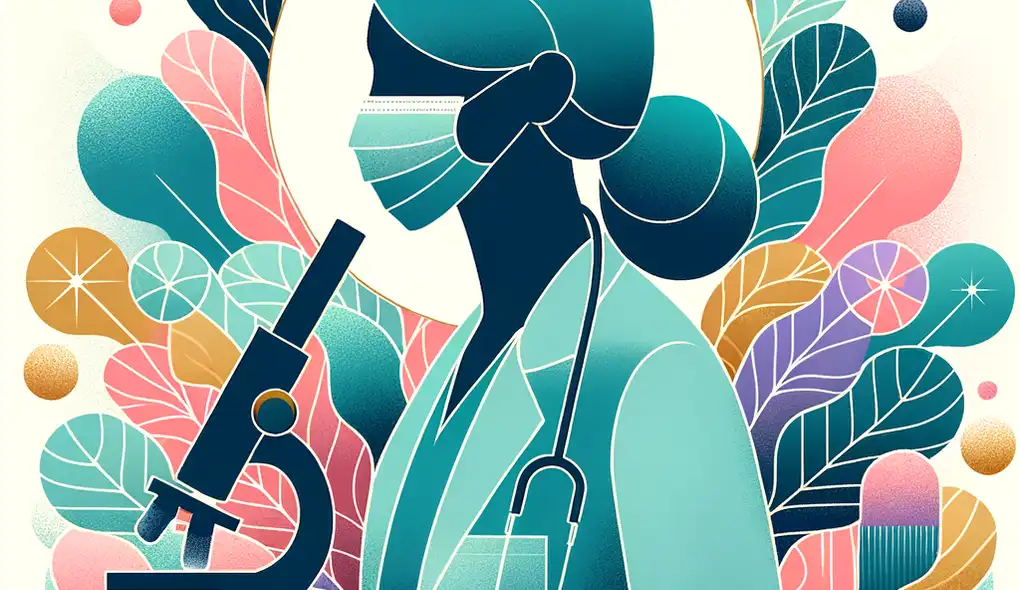Have you ever encountered a situation where there was a discrepancy between test results and clinical expectations? How did you handle it?
Clinical Laboratory Technologist Interview Questions
Sample answer to the question
Yes, I have encountered a situation where there was a discrepancy between test results and clinical expectations. It was during my internship at a hospital where I was responsible for performing blood tests. One day, I received a sample from a patient who showed symptoms of a certain disease, but the test results came back negative. This was unexpected and raised concerns. I handled the situation by double-checking the test procedure and retesting the sample to ensure accuracy. I also consulted with my supervisor and discussed the discrepancy. Together, we reviewed the patient's medical history and decided to order additional tests to further investigate. In the end, the additional tests revealed that the initial test results were indeed incorrect, and the patient was diagnosed with the disease. This experience taught me the importance of thoroughness and critical thinking in the laboratory, and the need for effective communication with colleagues.
A more solid answer
Yes, I have encountered a situation where there was a discrepancy between test results and clinical expectations. It was during my internship at a hospital where I was responsible for performing blood tests. One day, I received a sample from a patient who showed symptoms of a certain disease, but the test results came back negative. This was unexpected and raised concerns. To handle the situation, I took a systematic approach. First, I reviewed the patient's medical history and consulted with my supervisor to gather more information. We discussed the discrepancy and decided to conduct a thorough analysis of the test procedure. I closely examined the steps I followed during the initial test and identified a potential error in the process. I decided to retest the sample, ensuring that I followed the correct procedure meticulously. I also consulted with senior technologists to seek their insights and opinions. Additionally, I communicated with the patient's healthcare team to provide them with the updated information and to discuss the need for further testing. As a result of our collective efforts, we identified the issue in the initial test and concluded that it was a false negative result. The patient was later diagnosed with the disease based on the subsequent tests. This experience highlighted the importance of attention to detail and critical thinking in the laboratory setting. It also emphasized the significance of effective communication and collaboration with colleagues and healthcare professionals.
Why this is a more solid answer:
The solid answer builds upon the basic answer by providing more comprehensive details. It includes a systematic approach taken by the candidate, such as reviewing the patient's medical history, consulting with the supervisor, and conducting a thorough analysis of the test procedure. It also highlights the candidate's critical thinking skills and their ability to seek insights from senior technologists. Furthermore, the candidate emphasizes the importance of effective communication and collaboration with the patient's healthcare team.
An exceptional answer
Yes, I have encountered a situation where there was a discrepancy between test results and clinical expectations. During my internship at a renowned research institute, I was entrusted with analyzing genetic samples to identify potential disease markers. One particular case stood out, where a patient exhibited clear symptoms of a genetic disorder, but the test results indicated no abnormalities. Recognizing the significance of this discrepancy, I immediately raised the concern to my supervisor, who acknowledged the potential implications. To thoroughly investigate, I embarked on a multi-faceted analysis approach. Firstly, I reevaluated the complete testing process to identify any possible areas of error. Simultaneously, I sought guidance from leading geneticists in the institute, leveraging their expertise to gain insights into alternative explanations for the test results. I actively engaged in scientific forums and conferences to broaden my knowledge on similar cases and cutting-edge research. Through diligent collaboration with the patient's medical team, we explored the possibility of rare genetic mutations that could be responsible for the inconclusive results. Eventually, based on a comprehensive understanding of the patient's medical history and emerging research findings, we initiated a more advanced genetic testing approach. This revealed a previously unreported genetic variant associated with the disorder, leading to an accurate diagnosis and appropriate treatment plan. This experience highlighted the critical role of research, ongoing education, and collaboration in the face of clinical discrepancies. It reinforced my commitment to constantly expanding my knowledge and engaging in open communication with experts in the field.
Why this is an exceptional answer:
The exceptional answer further enhances the comprehensive details provided in the solid answer. It showcases the candidate's experience in a renowned research institute and focuses on analyzing genetic samples. The exceptional answer emphasizes the candidate's proactive approach, seeking guidance from leading geneticists and actively participating in scientific forums and conferences. It also highlights the collaboration with the patient's medical team and the utilization of cutting-edge research to identify a previously unreported genetic variant associated with the disorder. This answer demonstrates the candidate's exceptional analytical and problem-solving skills, as well as their commitment to ongoing education and collaboration.
How to prepare for this question
- Familiarize yourself with the laboratory procedures and equipment commonly used in clinical laboratories.
- Stay updated with the latest advancements and research in the field of medical laboratory tests and genetic analysis.
- Develop strong analytical and problem-solving skills to handle discrepancies between test results and clinical expectations.
- Practice effective communication and collaboration skills, as these are essential when working in a team and consulting with healthcare professionals.
- Be prepared to provide examples from your past experience where you demonstrated attention to detail, critical thinking, and effective communication in handling discrepancies between test results and clinical expectations.
What interviewers are evaluating
- Attention to detail
- Analytical and problem-solving skills
- Effective communication
Related Interview Questions
More questions for Clinical Laboratory Technologist interviews